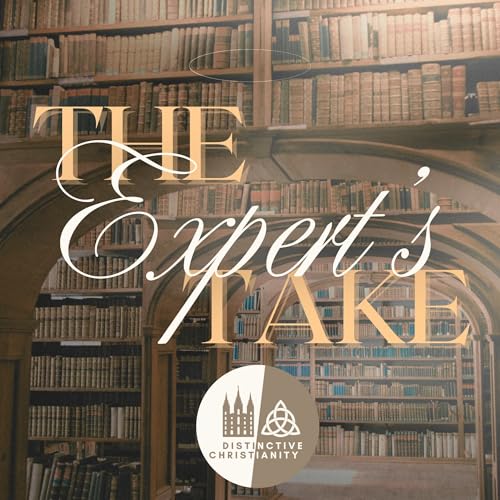In this episode, we welcome Dr. Elisa Eastwood Pulido to discuss her book The Spiritual Evolution of Margarito Bautista: Mexican Mormon Evangelizer, Polygamist Dissident, and Utopian Founder, 1878-1961. Who was Margarito Bautista, and why does he matter? Sometimes called “the Lamanite Prophet”, Margarito Bautista went from faith healing and life in the Mexican colonies - to helping found the first Spanish-speaking congregation in Salt Lake City, and from being a key member of the Third Convention and authoring dozens of books and pamphlets – to even founding his own colony: Colonia Industrial/Nueva Jerusalen. Included in this story is the “first major piece of LDS thoelogy ever authored by an indigenous convert” in which Bautista combines both indigenous Mexican history and the Book of Mormon into a 571-page book. Margarito Bautista saw in the Book of Mormon and the revelations of Joseph Smith a “prophetic program” for the Mexican people who had forgotten their true Israelite heritage. Moreover, he saw a pattern of reversal in the history of colonialism and an end-times in which an obedient Mexican Israel should found the Holy City in order to welcome the returning Christ, whom they anciently knew even prior to Columbus. Along the way Margarito, being both deeply committed to the Mexican people and to Mormon theology, would eventually be both excommunicated by the LDS church for “rebellion, insubordination, and apostasy”, as well as being expelled from the Third Convention with whom he had been a key part. Dr. Pulido writes that Bautista’s “theological pillars” were “polygamy, communalism, and indigenous priesthood”. Even as the LDS church leadership in Salt Lake City were shifting away from the early commitments of Mormonism – Bautista saw, once the priesthood was among “the Lamanites”, that a redeemed Mexico would be the bastion of a true Christianity that had been restored by the Gentile colonizers who’s time of dominance should be over. Far from being simply speculative theology, Bautista saw a connection even between the Lorenzo Snow couplet – and the social progress and perpetual development of Mexico. Listen in as Dr. Pulido takes us through a tour of one of the more important and challenging lives in the history of the Restoration Movement, and answers the question of whether we should see this charismatic figure, who some saw as a “prophet, seer, and revelator”, as either a tragic figure – or a triumphant figure.
Book: The Spiritual Evolution of Margarito Bautista: Mexican Mormon Evangelizer, Polygamist Dissident, and Utopian Founder, 1878-1961
Also check out: “Margarito Bautista, Mexican Politics, and the Third Convention”
Other resources:
Book of Mormon; Alma 10 and audio clip; D&C 76; D&C 132
“Becoming Like God” (Gospel Topics Essay)
Eduardo Balderas: Father of Church Translation, 1907-1989 by Ignacio Garcia
- Check out our previous interview here
Mormons in Mexico by F. LaMond Tullis
Joseph White Musser: A Mormon Fundamentalist by Cristina Rosetti
King Tiger: The Religious Vision of Reies Lipez Tijerina by Rudy Busto
 2 hrs and 24 mins
2 hrs and 24 mins 2 hrs and 24 mins
2 hrs and 24 mins Feb 2 20261 hr and 24 mins
Feb 2 20261 hr and 24 mins 1 hr and 30 mins
1 hr and 30 mins 1 hr and 10 mins
1 hr and 10 mins 1 hr and 30 mins
1 hr and 30 mins Jan 12 20261 hr and 44 mins
Jan 12 20261 hr and 44 mins 2 hrs and 2 mins
2 hrs and 2 mins
